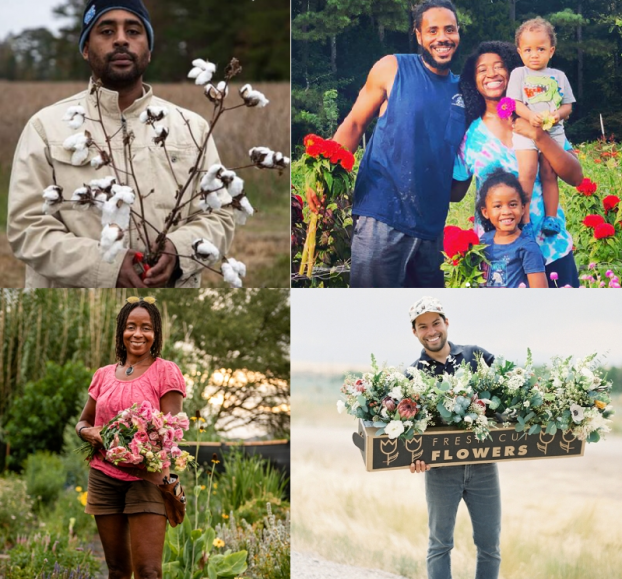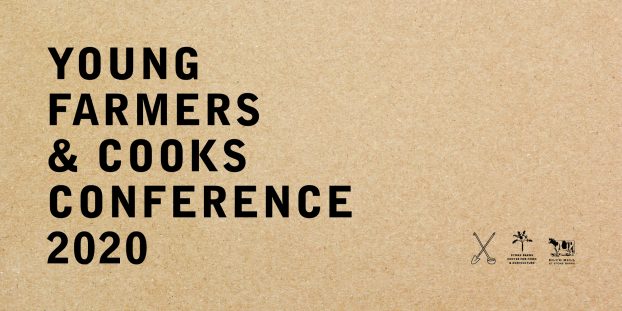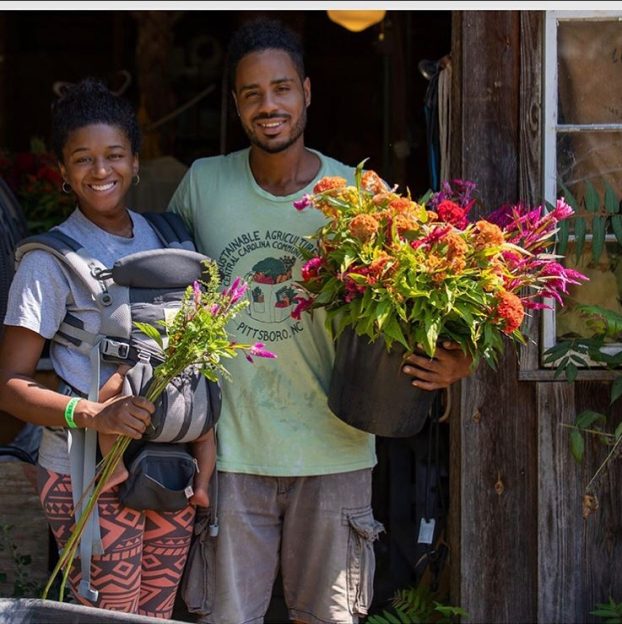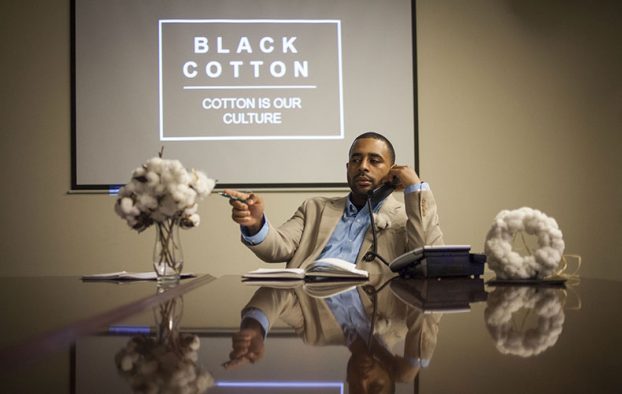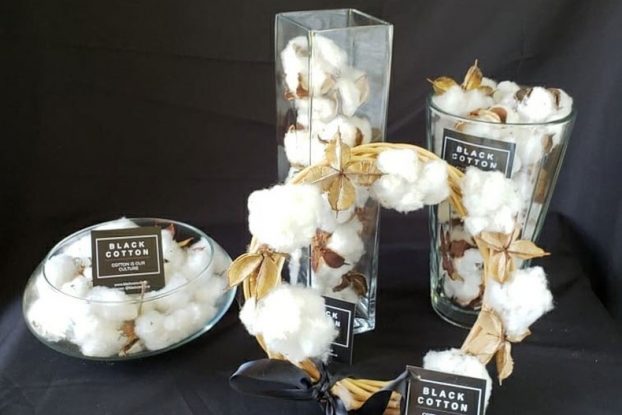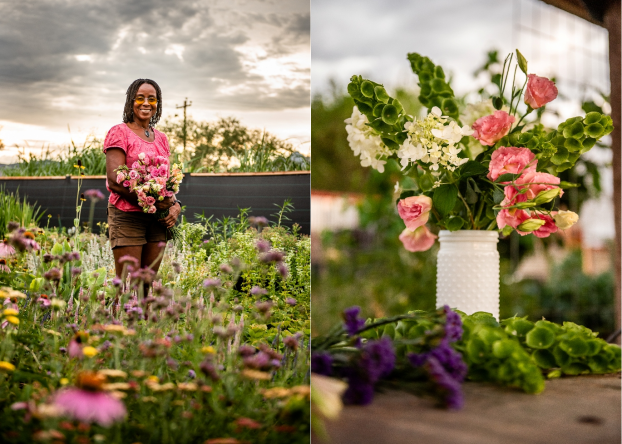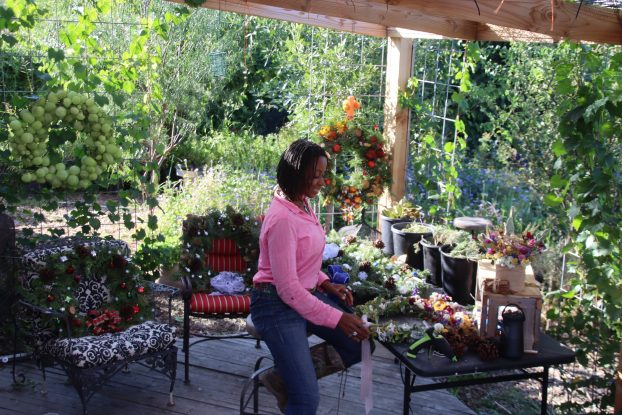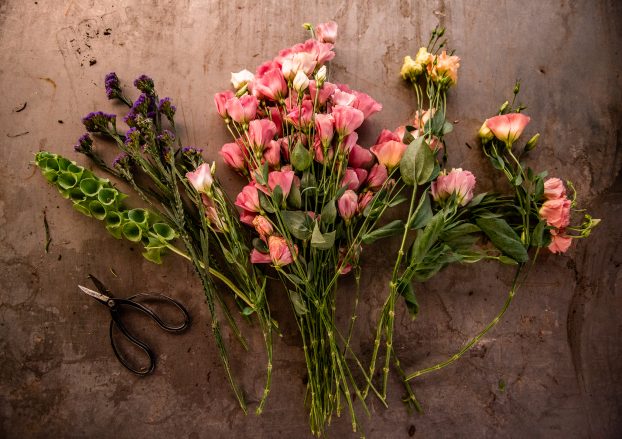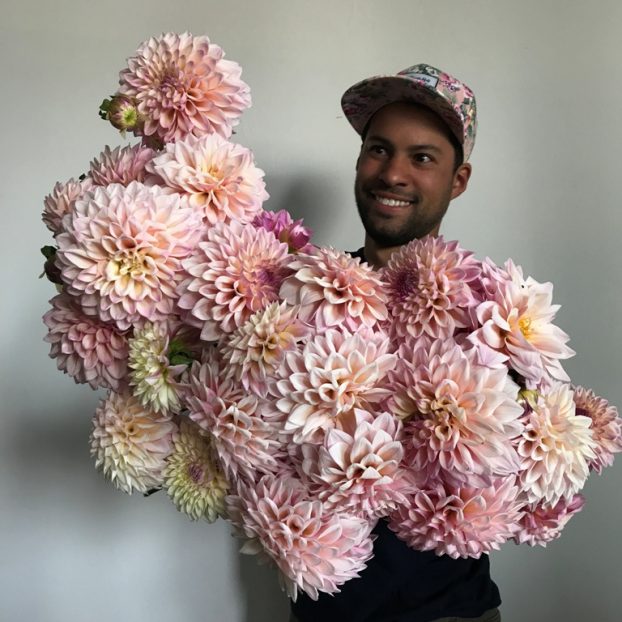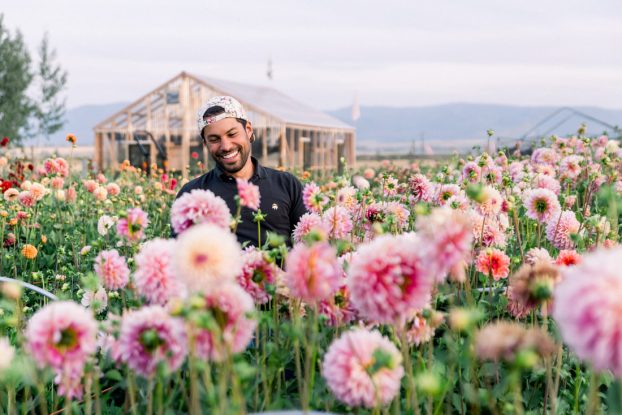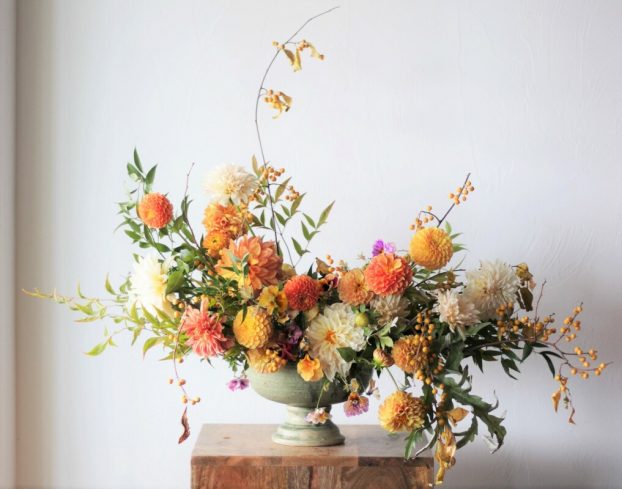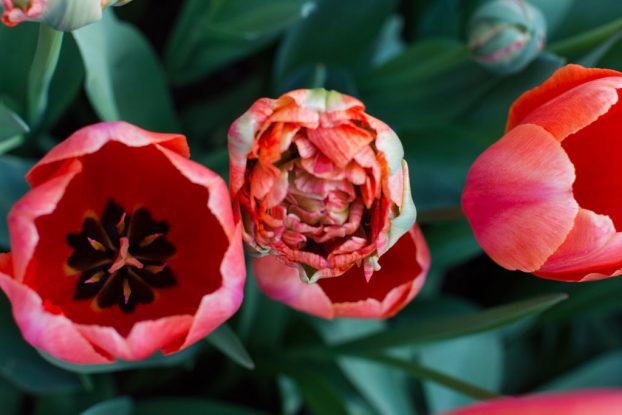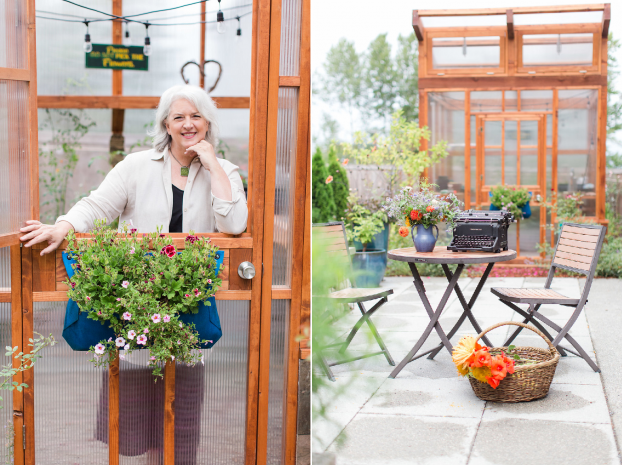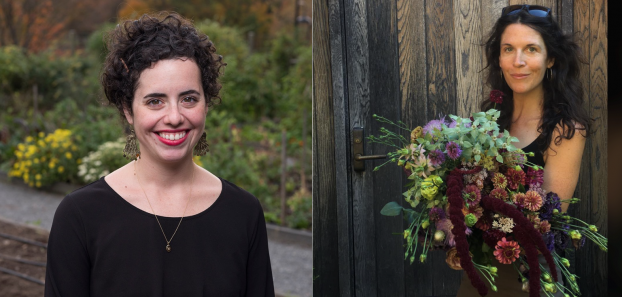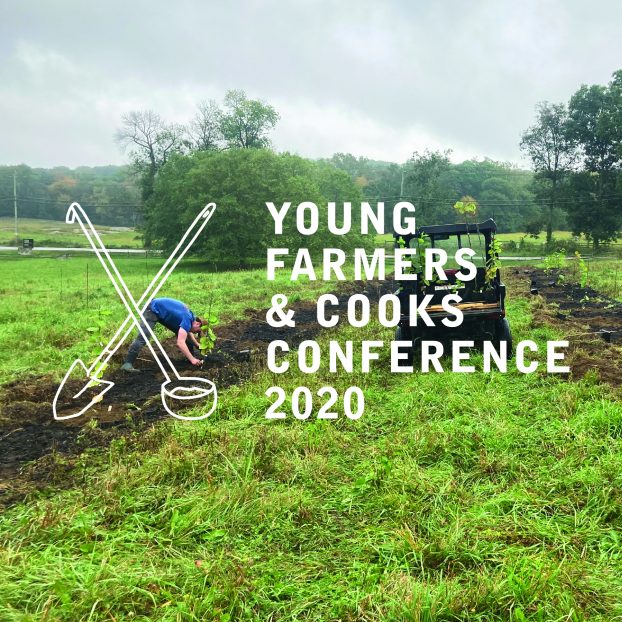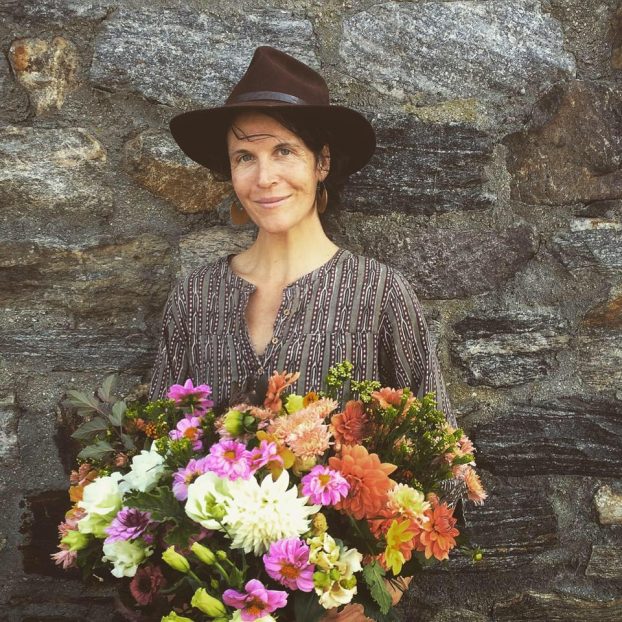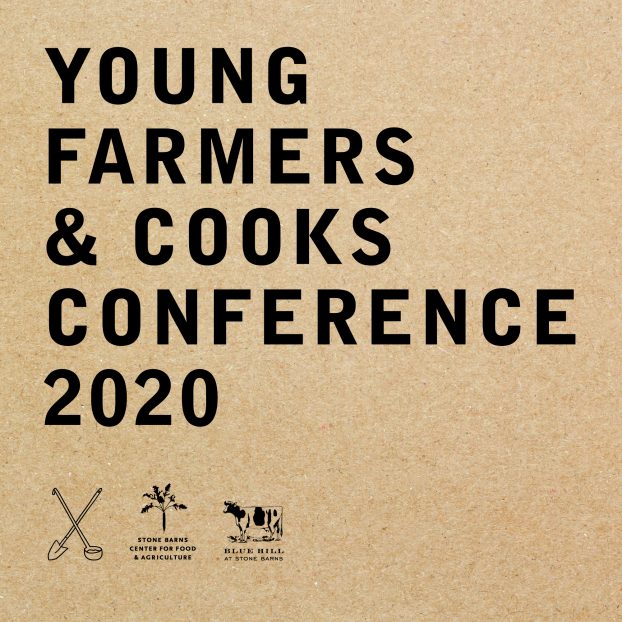Podcast: Play in new window | Download
Subscribe: Apple Podcasts | Podcast Index | RSS | More
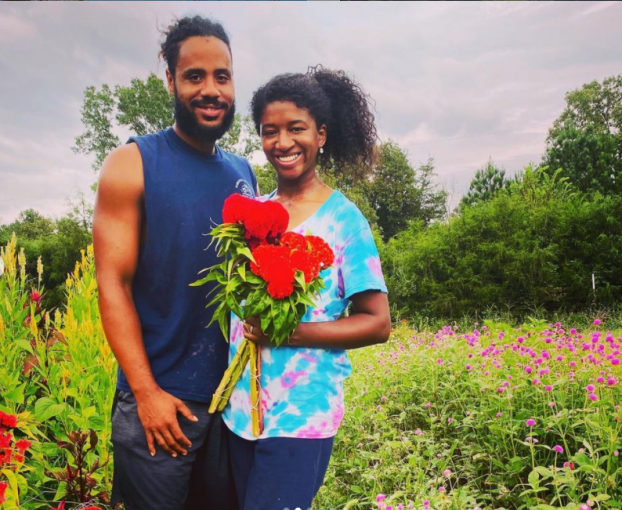
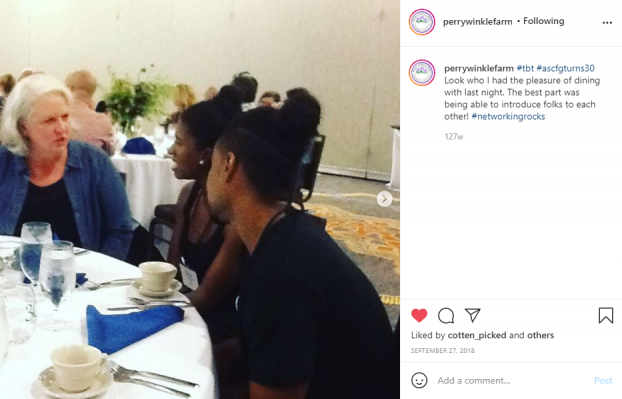
In 2018, at the most recent Association of Specialty Cut Flower Growers’ national conference in Raleigh, North Carolina, I met a young couple named Taij and Victoria Cotten. It was serendipity that placed us together at the banquet table, the night of ASCFG’s 30th Birthday Celebration, in fact. I learned that Taij and Victoria were invited to the conference by their mentor, Cathy Jones, who joined them at that table. I learned a little bit about their unique co-farming experience, and that’s what you’ll hear more about in today’s conversation.
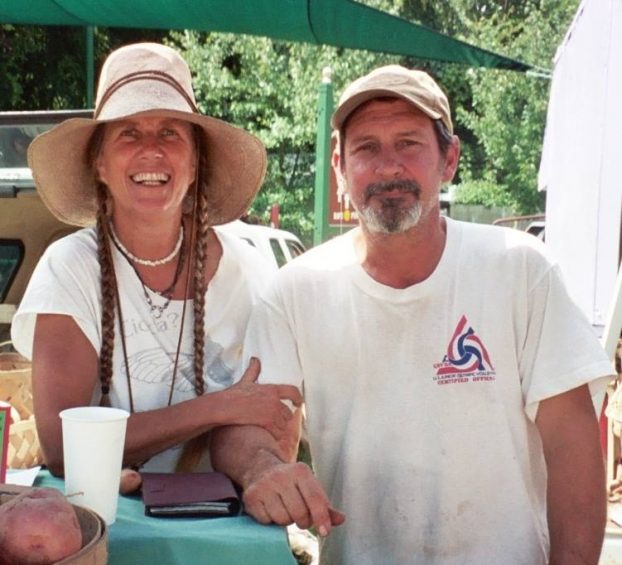
This is a story of two couples, one farm, and one special friendship between the generations. Cathy Jones and her husband Mike Perry founded Perry-winkle Farm thirty-plus years ago on land in Chatham County, outside of Chapel Hill, North Carolina. Their farm products include vegetables, herbs, cut flowers, and fresh eggs from pastured hens, which they sell at three regional farmers’ markets: Fearrington Village (seasonally) and 2 Carrboro Farmers markets (Wednesday-seasonally and Saturday- year round).
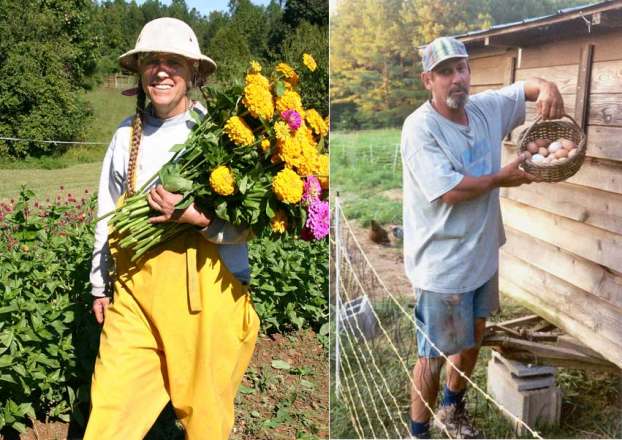
As first-generation farmers, they began the process of converting over-worked dairy crop land into a sustainable vegetable operation with little more than a few hand tools, a walk-behind tiller and subscriptions to Organic Gardening and New Farm magazines. They sought advice from other local growers and started attending conferences and workshops to broaden their “education”. A few years later, Perry-winkle Farm became one of the first farms in Chatham County to be “Certified Organic”.
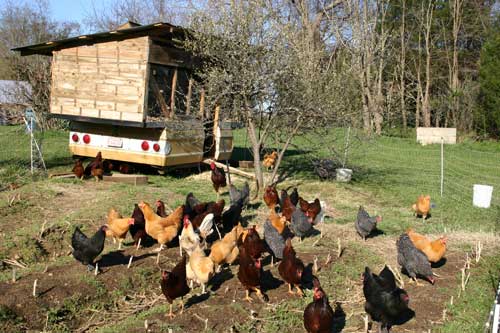
Over the years they have trained and benefited from the help of many employees. Working with motivated “learners” remains one of the most positive aspects of the farm’s activities. And when it comes to selling their beautiful, field-grown cut flowers, Perry-winkle creates mixed bouquets for farmers’ market sales. What Cathy, Mike, Victoria and Taij they really love is using their design skills to fashion arrangements for weddings, parties, and other special events. They also offer “custom or farmer’s choice” buckets of their flowers.
Click here to read more about Perry-winkle Farm in an article from NC State Extension’s Debbie Roos
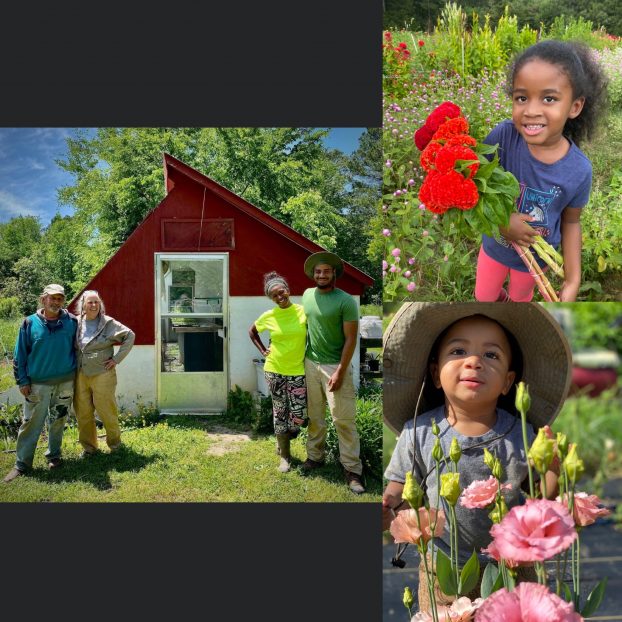
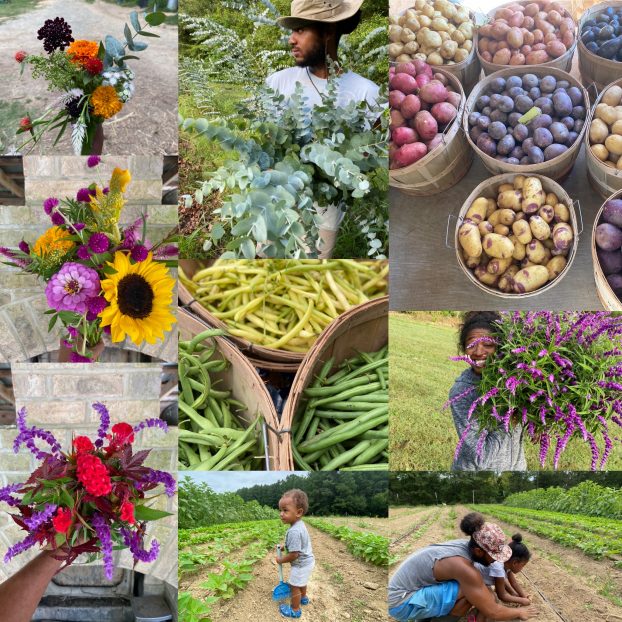
Here’s more about Taij and Victoria Cotten:
After responding to a Craigslist ad for Valentine’s Day in 2017 at Preston Flower Shop, Taij and Victoria were hooked on flowers. They quit their jobs and traveled North Carolina’s Piedmont farming region, talking with any farmer that had time or space for them. They quickly realized they wanted to farm.
Now farming alongside their mentors/farm-ily Michael Perry and Cathy Jones of Perry-winkle farm, the couple helps sustainably farm 4 acres in Northern Chatham County, specializing in seasonal vegetables, specialty cut flowers and pasture laying hens. Taij and Victoria reside in Chatham County, NC with their two adorable, flower-loving children: Carleigh (6) and Titus (1)
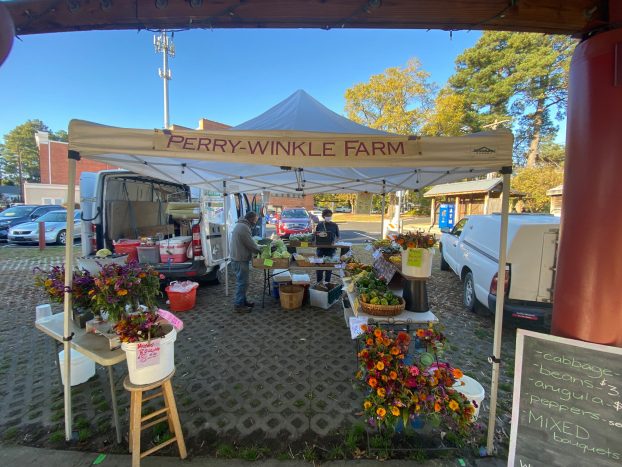
You may recall that Taij and Victoria were featured panelists on the flower farming panel as part of last December’s Young Farmers & Cooks Conference hosted by Stone Barns Center for Sustainable Agriculture, which I moderated — and later shared as a Slow Flowers Podcast episode 484 on December 16th. They shared part of their story then, but we were pressed for time to include all the panelists, so I promised to circle back and devote an entire episode to Perry-winkle Farm.
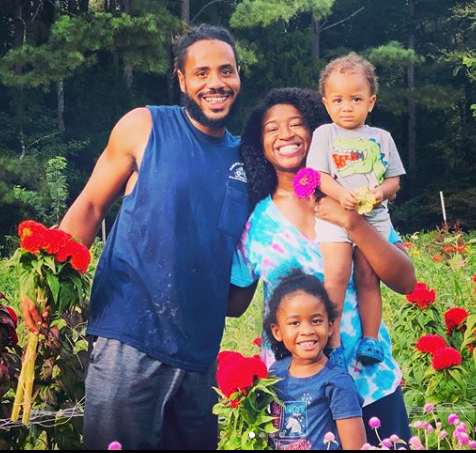
Thanks so much for joining me today. I am inspired by the story of Mike and Cathy, Taij and Victoria, and I can’t wait to see more from this amazing farm-ily, a potential model for other established farms in need of young talent and enthusiasm.
Find and Follow these flower farmers:
Perry-winkle Farm on Facebook
Perry-winkle Farm on Instagram
The Cottens on Instagram
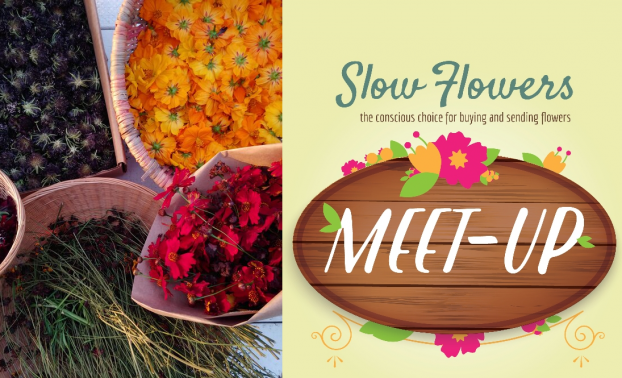
This Friday, we are hosting the March Slow Flowers Member (virtual) Meet Up — and all Slow Flowers Society members are invited to log in via Zoom for a fantastic session! You’ll meet three Slow Flowers members who will share all about Dye Plants and Natural Pigments from Botanical Ingredients. Learn how you can grow dye plants for your own projects or to market to other artists.
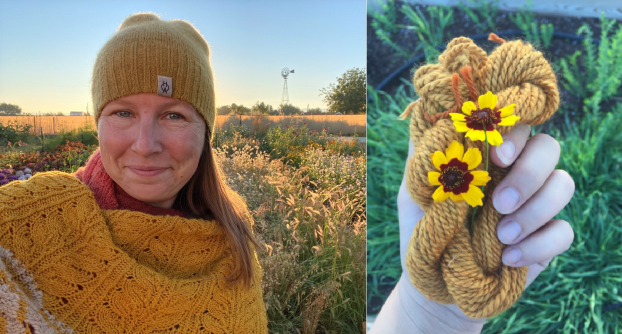
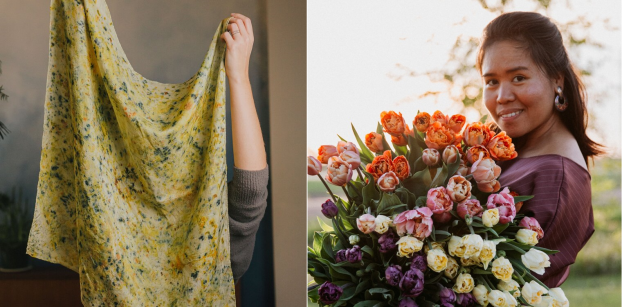
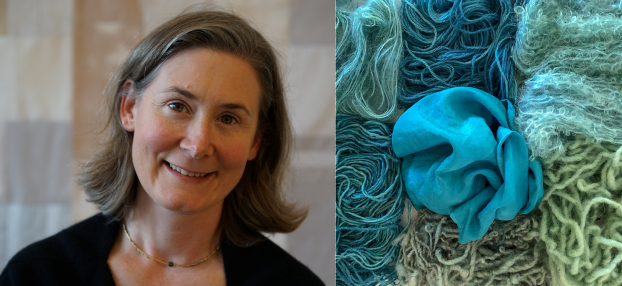
Our special guests include Elaine Vandiver of Old Homestead Alpacas and Gholson Gardens (Walla Walla, Washington); Julie Beeler of Bloom and Dye (Trout Lake, Washington); and Lourdes Casañares-Still of Masagana Flower Farm and Tinta Studio (La Broquerie, Manitoba).
I want to emphasize that your Slow Flowers Membership Gives You an Important Narrative and Mission to Share with Your Community and Your Customers. And joining our monthly meet-up is one very popular benefit that has emerged in the past year . . . educating, connecting and inspiring hundreds of you. I can’t wait for this incredible lineup of savvy growers and artists to share their information with our community.
Thank you to our Sponsors!
This podcast is brought to you by Slowflowers.com, the free, online directory to more than 850 florists, shops, and studios who design with local, seasonal and sustainable flowers and to the farms that grow those blooms. It’s the conscious choice for buying and sending flowers.
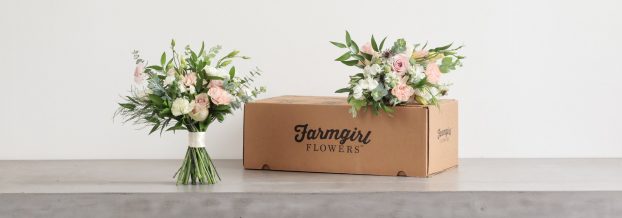
And thank you to our lead sponsor for 2021, Farmgirl Flowers. Farmgirl Flowers delivers iconic burlap-wrapped bouquets and lush, abundant arrangements to customers across the U.S., supporting more than 20 U.S. flower farms by purchasing more than $9 million dollars of U.S.-grown fresh and seasonal flowers and foliage annually, and providing competitive salaries and benefits to 240 team members based in Watsonville, California and Miami, Florida. Discover more at farmgirlflowers.com.


For each Podcast episode this year, we also thank three of our Major Sponsors. Our first thanks goes to The Gardener’s Workshop, which offers a full curriculum of online education for flower farmers and farmer-florists. Online education is more important this year than ever, and you’ll want to check out the course offerings at thegardenersworkshop.com.
It’s fitting that our next sponsor thanks goes to Association of Specialty Cut Flower Growers, through which I met these lovely humans at Perry-winkle Farm. Formed in 1988, ASCFG was created to educate, unite, and support commercial cut flower growers. It mission is to help growers produce high-quality floral material, and to foster and promote the local availability of that product. Learn more at ascfg.org.
Our final sponsor thanks goes to Mayesh Wholesale Florist. Family-owned since 1978, Mayesh is the premier wedding and event supplier in the U.S. and we’re thrilled to partner with Mayesh to promote local and domestic flowers, which they source from farms large and small around the U.S. Learn more at mayesh.com.
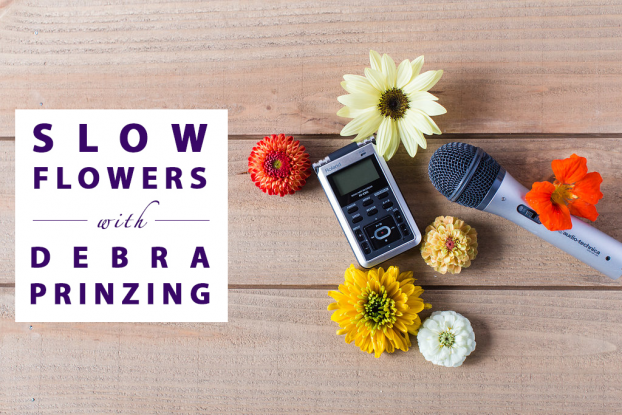
Thanks so much for joining us today! The Slow Flowers Podcast has been downloaded more than 700,000 times by listeners like you. Thank you for listening, commenting and sharing – it means so much. As our movement gains more supporters and more passionate participants who believe in the importance of our domestic cut flower industry, the momentum is contagious. I know you feel it, too.
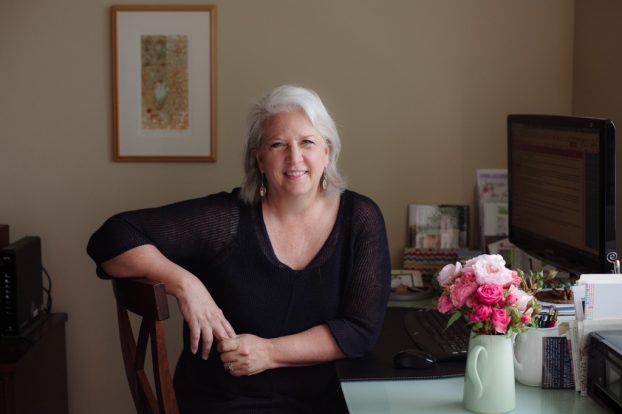
I’m Debra Prinzing, host and producer of the Slow Flowers Podcast. Next week, you’re invited to join me in putting more Slow Flowers on the table, one vase at a time. And If you like what you hear, please consider logging onto iTunes and posting a listener review.
I value your support and invite you to show your thanks to support Slow Flowers’ ongoing advocacy, education and outreach activities. You can find the donate button in the column to the right at debraprinzing.com
The content and opinions expressed here are either mine alone or those of my guests alone, independent of any podcast sponsor or other person, company or organization.
The Slow Flowers Podcast is engineered and edited by Andrew Brenlan. Learn more about his work at soundbodymovement.com.
Music Credits:
Alustrat; Turning On the Lights; Gaenaby Blue Dot Sessions
http://www.sessions.blue
Lovely by Tryad
http://tryad.bandcamp.com/album/instrumentals
http://creativecommons.org/licenses/by-sa/3.0/
In The Field
audionautix.com









